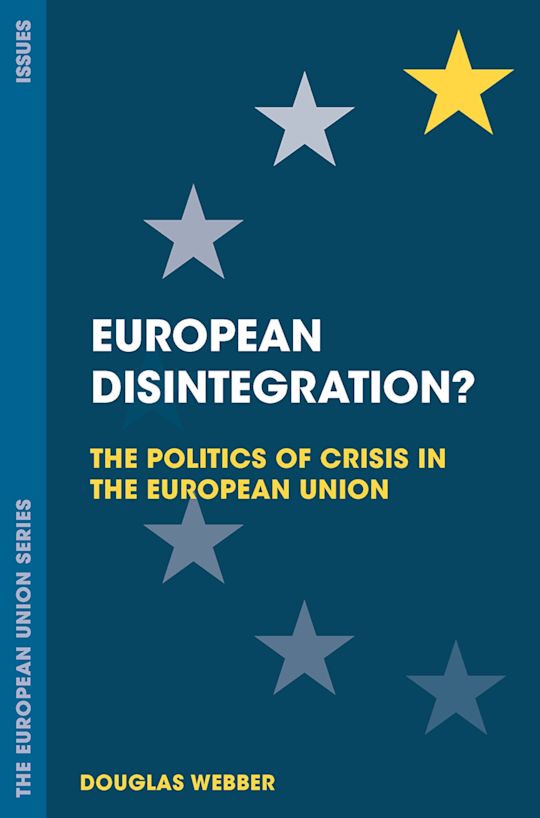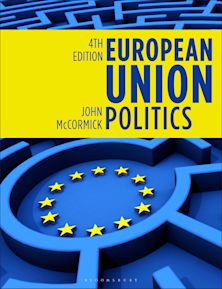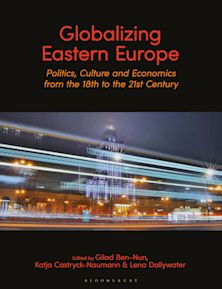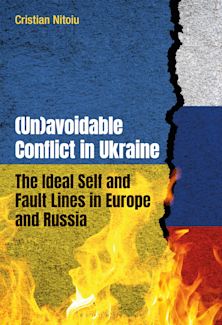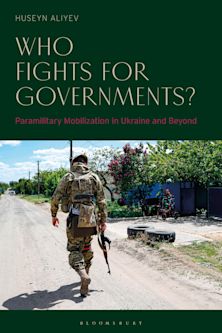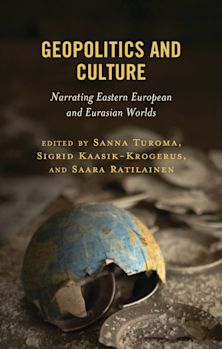- Home
- ACADEMIC
- Politics & International Relations
- European Politics
- European Disintegration?
European Disintegration?
The Politics of Crisis in the European Union
- Textbook
European Disintegration?
The Politics of Crisis in the European Union
- Textbook
This product is usually dispatched within 10-14 days
- Delivery and returns info
-
Free UK delivery on orders £30 or over
Inspection copy added to basket
This title is available for inspection copy requests
Choose your preferred format. EU customers: we regret we cannot currently supply print inspection copies via the website but ebooks are available.
Please note ebook inspection copies are fulfilled by VitalSource™.
You must sign in to add this item to your wishlist. Please sign in or create an account
Description
This new book provides a comprehensive analysis of Europe on the brink of political disintegration. Observers of the European Union (EU) could be forgiven for thinking that it is in a state of permanent crisis. The Union has been beset with high levels of Eurozone debt, Russian intervention and armed conflict in Ukraine, refugees fleeing conflict zones in North Africa and the Middle East, and the decision of Britain to leave the European Union. This text offers a concise and readable assessment of the dynamics, character and consequences of these four crises and the increasingly real possibility of European disintegration.
High levels of socio-economic interdependence and institutionalization have failed to result in an ever closer union, and yet the proposed theories of disintegration also fall short. Webber instead shows that it is only by looking at the role of the EU's dominant member, Germany, in each crisis that the potential for an increasingly fragmented Europe becomes clear. Until now, Germany has been the EU's stabilizing force but this is no longer guaranteed. The fate of the integration process will depend on whether other, more inclusive forms of stabilizing leadership may emerge to fill the vacuum created by Berlin's incapacity.
This text is the ideal companion for upper undergraduate and postgraduate students of the European Union, as part of degrees in politics, international relations or European studies, or for anyone interested in the crises of the European Union.
Table of Contents
2. Explaining European Integration and Disintegration
3. The Eurozone Crisis
4. The Ukraine Crisis
5. The Schengen and Refugee Crisis
6. The Brexit Crisis
7. Conclusions
Product details

| Published | 29 Nov 2018 |
|---|---|
| Format | Paperback |
| Edition | 1st |
| Extent | 280 |
| ISBN | 9781137529466 |
| Imprint | Bloomsbury Academic |
| Dimensions | 234 x 156 mm |
| Series | The European Union Series |
| Publisher | Bloomsbury Publishing |
About the contributors
Reviews
-
Very impressive, combining impressive empirical research with a dazzling command of the scholarly literature. It made realize how little I previously knew about the EU. A very strong, original contribution that fully deserves all the praise it has received to date
David J. Vogel, University of California, Berkley
-
This book is a major contribution to the field of European studies. It is a deeply informed and immensely rich analysis of the multiple crises that have beset the European Union and their effects on its institutional stability. Douglas Webber has written one of the most thoughtful books on the subject to have appeared in the past decade. Its recognition of the possibilities for disintegration is a breath of fresh air in the study of Europe.
Gary Marks, University of North Carolina at Chapel Hill, USA
-
This is a great book. It is extremely well-written and a pleasure to read. It is well-researched and -documented. It addresses very important issues. Very importantly, it also analyses the historical antecedents of the current crises. It will have great public as well as academic appeal … I second its sceptical conclusions.
Fritz Scharpf, Emeritus Director, Max Planck Institute for the Study of Societies, Cologne
-
This is a real contribution, which starts to fill a serious gap in the literature on the EU and European integration. Why did something like this not come sooner? It is also really well-written and inspiring to read.
Ulrich Krotz, Professor of International Relations, European University Institute, Florence
-
This is truly a great book, highly accessible, well-researched and very elegantly formulated. I learned a lot from it. It will be used all over Europe. I expect it to be very successful in the market.
Gerda Falkner, Professor of Political Science, University of Vienna
-
This fascinating and well-written book couldn't be timelier. Well organized, thorough, and filled with historical facts, it explores the Eurozone, Ukraine, Refugee and Brexit Crises and their political and economic roots. It is an essential reference for everyone with an interest in the crisis politics in the European Union.
Professor John Ryan, London School of Economics, UK









